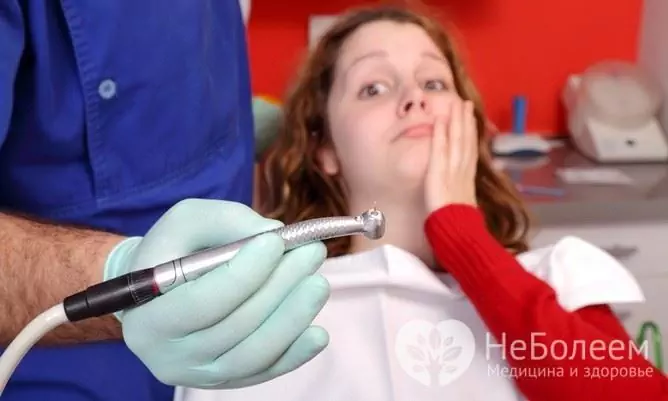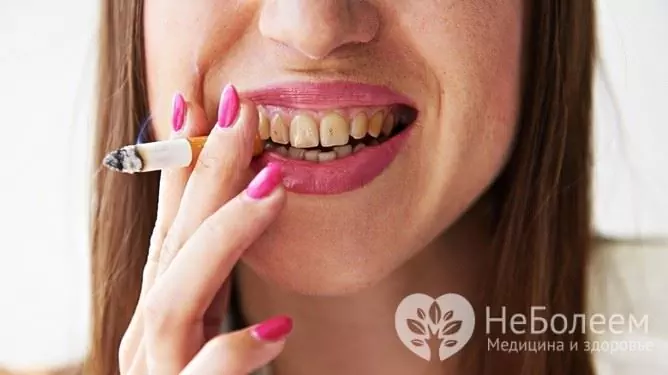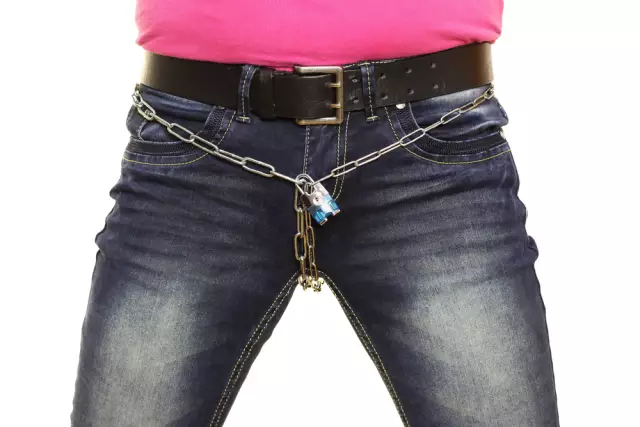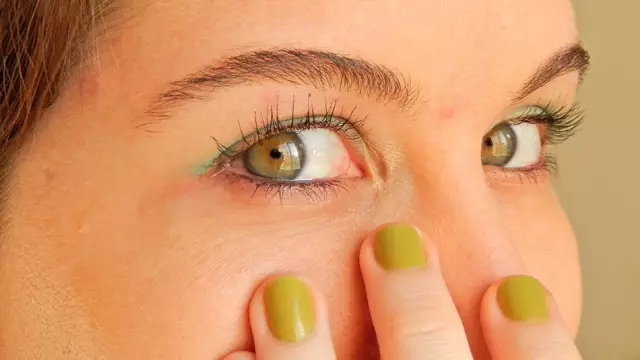- Author Rachel Wainwright wainwright@abchealthonline.com.
- Public 2023-12-15 07:39.
- Last modified 2025-11-02 20:14.
Why are Russians afraid of dentists?
According to statistics, only one in ten of our compatriots can boast of a decent oral health. For every average Russian, there are six teeth affected by caries. For comparison, this indicator among Europeans is almost six times less. The situation with the prevalence of dental problems is truly catastrophic, and this is not only a matter of non-observance of hygiene rules or the craze for sweets. Sadly, many Russians are simply afraid to visit dentists' offices.

Source: depositphotos.com
The origins of the problem
Of course, all people who are afraid of dentists should not be considered cowards. Such fear also has nothing in common with pathologies: unlike phobias, it is largely justified by the situation that has developed in domestic dentistry for several decades.
The specific culprit in the formation of a negative attitude towards dentists in society was the "generally available and absolutely free" Soviet medicine, which was based on the principle of total economy. The doctor had very little time and a very limited amount of materials to help the patient. There was also almost no renovation of equipment in district and district polyclinics (where the majority of the population was treated). As a result, dentists worked with antediluvian equipment and were forced to place fillings from a material that collapsed very quickly.
The principle of economy had an especially unpleasant effect on the use of medicines: almost all procedures were carried out without anesthesia. Many Russians even developed a certain type of behavior: pain in a carious tooth was drowned out by analgesics until its condition began to require removal. This was the only way to get rid of the problem with at least minimal anesthesia. Dental treatment became so stressful that people who visited the doctor solely for preventive purposes were very rare.
Of course, the doctors were not too happy with the situation: working with a patient who is trembling with fear or writhing in pain is difficult and unpleasant. Dentists got out of the situation as best they could: there were excellent psychologists who were able to find an approach to patients (however, a “soothing” conversation with a patient was not included in the time standards). There were (and often) doctors who preferred to treat the fear of patients as a whim and did not consider it necessary to hide their dissatisfaction with this. The imperfection of the materials used led to unpleasant consequences: the fillings fell out, and inflammatory processes occurred. The situation was aggravated by the fact that in medicine there was a principle of strict territorial binding: the patient could not choose a doctor. In pediatric dentistry, the situation was similar: the same procedures were used,without anesthesia and on outdated equipment. Teeth were treated forcibly to schoolchildren (many of today's pensioners remember this with horror).
Now dental care in our country is quite different from that which was available to our parents. For example, anesthesia in dental treatment has ceased to be a rarity. On this basis, some costs have arisen: often patients express a desire to receive all dental procedures under general anesthesia. This can also be considered a consequence of the fear of dentists: people are ready to take serious health risks in order not to get into the usual stressful situation. However, in a big city it is not difficult to find a well-equipped dental clinic and doctors who provide high-quality treatment under local anesthesia, almost without causing discomfort to the patient. Such services will not be cheap, but even in regional free clinics you can already find modern drills and instruments. On the periphery, the situation is much worse:dentists are few, they treat in about the same way as fifty years ago. Therefore, the opinion that dentistry in Russia is directly related to pain, fear, and sometimes incompetence and rudeness of medical personnel is still relevant.
What to do?
The problem must be solved somehow. The question is not only in the absence of "Hollywood" smiles, but also in the fact that poor oral health has a bad effect on health. A person who suffers from caries or does not have a complete set of teeth develops disorders of the digestive tract, nervous, cardiovascular and other body systems.

Source: depositphotos.com
It is useless to scare people with the emergence of diseases in the future if they are afraid to visit dentists now. To form and develop a culture of receiving dental care, it is necessary:
- change the attitude of the state towards dental care for the population. This means that anesthesia for dental treatment should become mandatory for all medical institutions, including public (free) ones. People will not cease to be afraid of dentists until they are sure that visiting any office will not bring them any unpleasant sensations;
- to increase the number of dentists and offices equipped with modern technology in all regions so that every patient can choose a doctor. Treatment will be successful only with the patient's full confidence in the doctor. This is true for any area of medicine, and especially for dentistry;
- educate children about the culture of receiving dental care from an early age. They must know not only the rules of oral care, but also understand the need for regular preventive examinations. It is very important that in the minds of babies, visits to dental surgeries are not associated with negative emotions. Here the role of doctors is invaluable, who should be not only good dentists, but also child psychologists who know how to minimize stressful situations.
The fear of dentists among our compatriots is very common, it is impossible to get rid of it in a short time. But if there is publicly available dental care that is not related to the idea of pain and stress, there is a chance that our children and grandchildren will learn to treat regular visits to the dentist as ordinary events in life, and future generations of Russians will be able to live without embarrassment of their smiles.
YouTube video related to the article:

Maria Kulkes Medical journalist About the author
Education: First Moscow State Medical University named after I. M. Sechenov, specialty "General Medicine".
Found a mistake in the text? Select it and press Ctrl + Enter.






